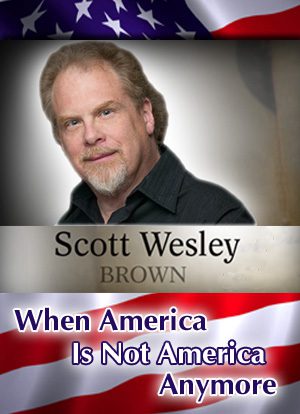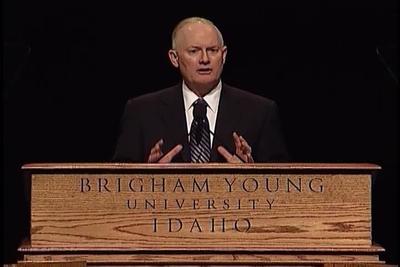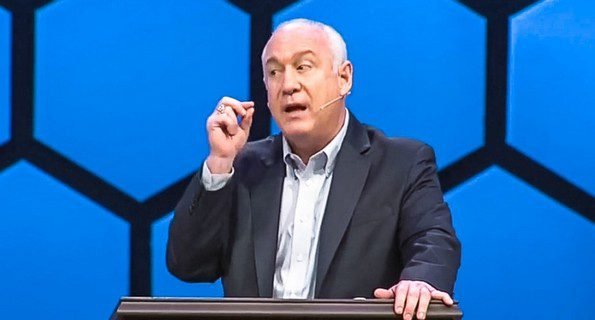This is the fifty-first installment in The Sounds of Fundamentalism series. This is a series that I would like readers to help me with. If you know of a video clip that shows the crazy, cantankerous, or contradictory side of Evangelical Christianity, please send me an email with the name or link to the video. Please do not leave suggestions in the comment section. Let’s have some fun!
Most people would agree that watching porn in plain view of strangers — especially on an airplane — is inappropriate. However, in the process of listing every minute detail of what the man was watching, Hawkins forgets that she too was watching porn. If watching porn is a sin, why was Hawkins watching it? Hawkins intently viewing what was on the man’s screen and then complaining about it is akin to someone getting drunk and then preaching against alcohol use. I highly doubt the man was watching child pornography. Hawkins knows this, but suggesting that the man “might” have been watching child pornography gives the story a salacious appeal and likely promotes increased giving to NCSE by outraged Christians. Hawkins reported the man to the police. I found no public record of anyone being arrested for watching child porn on an airplane.
Hi everyone! My name is Dawn Hawkins, I’m the Executive Director of Morality in Media. I direct a number of anti-pornography campaigns, and I just wanted to share with you my experience from the weekend. I’m kind of emotional about it still, so bear with me.
So, I was heading to Texas from DC. I was asked to speak at a conference about the links between pornography and sex trafficking. And I boarded my flight in Baltimore, at 6 AM on Friday. Only to find that the man sitting in front of me was looking at pornography on his iPad. Of all people to be sitting in front of, he was right in front of me. I was speechless, I was stunned, I didn’t know what to say. I could not believe he was looking at pornography right there on the airplane, at six am in the morning.
So, I sat back, for enough time for him to for him to flip through about eight images. They were all of very-very young girls. I couldn’t tell if they were 14 or 18. They were definitely young. They were all Asian. And a couple of the photographs were very violent in nature. One of them even had one girl whipping the other girl. With a whip.
As soon as I gathered myself, I couldn’t help it, I definitely said something. Somewhat loudly, I asked him if he was really looking at pornography at that time. I said, you know, “is that really pornography?! Are you looking at pornography right now, on this airplane?” “Are those girls even 18? Is that child-pornography?!” I was making a fairly big deal about it. And everyone seemed to be look at us. “Are those girls even 18? Is that child-pornography?!” I was making a fairly big deal about it. And everyone seemed to be look at us.
And I turned around, and there was a flight attendant right behind me. A male flight attendant. And I said to him, “Sir, this man is looking at pornography. Will you please do something about it?” The flight attendant just stood there. He did nothing. He said there was nothing he could do. That he refused to do anything, especially because it was making me and other passengers so uncomfortable. And I am so sure it was making the other passengers uncomfortable as well.
Anyway, the guy put it away. I was sitting there, shaking. I was so upset.
A few minutes later, I leaned forward and in a much quiet voice, directed just at the man, I said to him, “Sir, I’m head right now to speak at a conference about pornography and sex trafficking. You are contributing to the problem. You’re exploiting millions of women. And children. You’re creating the demand. You’re the one contributing to all this harm.” And right then, a woman who was two rows up from us, she stood up and interrupted me. And she faced me and she said, she was probably in her 50’s, she said, “be quiet! No one cares!”
I couldn’t, I could not believe that a woman, of all people, would stand up and tell me to be quiet. She didn’t tell the man to stop looking at pornography! She didn’t say anything about that! She just said, no one cared, that he was looking at pornography. What was likely child pornography.
We know that pornography is so addictive, and that man was likely very addicted to whatever, that’s why he was looking at porn right there. And that early. He couldn’t help it! I feel really bad for him. Part of me does. Just because I understand that he was struggling with these urges, and I’m sure that he doesn’t. He’s not happy and he doesn’t want that.
I just wanted to share this experience with you all. Have you experienced pornography on your plane? Is this the common danger to us? I mean, I’m involved, every day, in the fight against pornography. And I did not realize that there is a danger to us on airplanes in the United States. I got off the airplane and I reported it to a police officer, who promised to investigate. He went to man’s next gate, especially because the likelihood that it was child pornography is very high.
Needless to say, airlines need to have a policy. It needs to be spelled out. That obscenity and pornography is not allowed on an airplane, especially since it’s a danger to all passengers, and flight attendants. It would be a very unhealthy working place.
I work for Morality in Media, we direct the war on illegal pornography at pornharms.com. I hope to hear from you soon!









 This is the forty-seventh installment in The Sounds of Fundamentalism series. This is a series that I would like readers to help me with. If you know of a video clip that shows the crazy, cantankerous, or contradictory side of Evangelical Christianity,
This is the forty-seventh installment in The Sounds of Fundamentalism series. This is a series that I would like readers to help me with. If you know of a video clip that shows the crazy, cantankerous, or contradictory side of Evangelical Christianity,